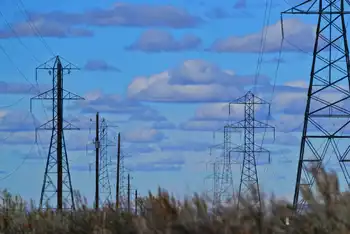- Arnold to Wrestle with California's Energy Policies
California Governor-Elect Arnold Schwarzenegger has finally met his match: the state's energy policies. But the early indications are that his blueprint is insightful and balanced - embracing some free market approaches while being mindful of earlier, failed experiences.
California's energy debacle of 2000-2001 should not be considered a case study in open and free electricity markets. It is merely an example of government meddling that went terribly awry. Open markets have produced solid gains for other industries that had once been tightly regulated and to some analysts the concept remains valid for the energy sector as well. In other words, providing choices that range from the type of power to buy to the supplier that provides that electricity may provide benefits to certain sectors of the market.
"It's a very detailed and thoughtful plan for the California market," says Severin Borenstein, director of the University of California Energy Institute. "There will be huge resistance from the California Public Utility Commission and some of that is well-founded. But some is just a complete abhorrence of economic incentives."
The governor-elect's plan, for example, would re-institute an earlier idea that permitted large industrials to shop for the best rates. The rationale is that the biggest buyers understand risks and have the resources to make informed decisions whereas the smaller ones lack such expertise and should be served by regulated utilities. The largest users would probably have to pay a surcharge for past debts that have been racked up by the regulated utilities so that other consumers don't get saddled with them.
Schwarzenegger's measures would furthermore require a greater use of green energy and put more of a focus on conservation. Larger customers, for instance, would use real-time energy pricing that would provide incentives to curtail energy consumption.
At first glance, the proposals seem less contentious than those introduced by the man Schwarzenegger is replacing, Gary Davis. After all, everyone seems to be getting a little of what they want?all from a man who came to power on having broad appeal and from a lone Republican in America's most famous Democratic family: the Kennedy's.
But, Arnold has a tough battle ahead. For starters, the state's legislature is controlled by Democrats who are extremely leery now of anything that smacks of deregulation. Critics claim the failed policies of the past cost the state $50 billion. Not only did the lights go out but businesses struggled or went under as a result. Furthermore, many of the public utility commissioners that Davis appointed will remain in power to 2005, although the most vocal opponents of deregulation leave next year. The bottom line, though, is that critics point to polls showing that 75 percent of all Californians don't want deregulation.
Texas Model
If Texas is considered the paragon of deregulation?an iffy presumption at this early point?then Arnold's plan is to mimic the best features of those policies. Texas began restructuring its wholesale electricity business in 1995, which has meant an abundance of power has come on the market. As a result, 14-percent reserve margins exist. That's because since 1995, at least 39 power-generation projects have been completed totaling 13,000 megawatts (MW) and many more are in the construction or planning phases. The state doesn't import or export much power.
Meanwhile, the regulatory framework allows utilities to procure power in the way that they see fit, whether it is long term contracts or from the spot market. By being able to purchase long-term power contracts, utilities have locked in prices. And the state is continually working to resolve constraint points along the grid so that the electricity market there can remain vibrant.
Finally, incumbent utilities in Texas can't jack up their rates unless the underlying price of the fuel jumps and requires corresponding rate hikes. If the utilities had to eat that increase, they would be battling for their lives, much like Southern California Edison and PG&E have been doing. Until markets settle, companies in Texas have been forced to cut prices, although they have been permitted to alter them accordingly if natural-gas prices climb. Wholesale prices are not permitted to exceed the regulated retail prices.
Arnold's plan:
- Encourage private investment in generation and require high enough reserve levels so as to avoid supply-demand issues that harmed the state in 2000-2001;
- Promote real-time pricing for certain businesses to push energy conservation. Along those lines, business could have their power remotely controlled by utilities to shift energy usage and save money;
- Prompt utilities to enter into long-term energy contracts as a way to hedge against higher rates. At the same time, the governor-elect would work to cut the high cost tied to the long-term contracts that the state entered into at the height of the energy crisis, and
- Foster greater use of green energy. Schwarzenegger wants 33 percent of the state's power to be fueled by solar, wind and hydro sources, all by 2020.
"I would describe this as an aggressive and creative plan to stimulate private investment and a shift toward providing certainty in the market," says Joe Rodota, policy director for the Schwarzenegger transition team in an interview with the Los Angeles Times.
Fight Ahead
To be sure, California's nerves remained frayed when it comes to energy deregulation. The businesses that experienced 300 percent rate hikes are demanding market certainty. Price volatility along with preventing marketplace manipulation and winning bigger refunds for previous abuses top the list of concerns. The Democratically-controlled legislature is not inclined to take big risks.
According to Roberta Gamble, industry manager for Frost & Sullivan in Palo Alto, Calif., it will take at least a few years to increase supply to the point at which there are comfortable reserve margins. She is therefore fearful that it would be too soon to unleash any market forces until the infrastructure could easily support market competition. Otherwise, she says that businesses would get hit with the price increases?all at a time when the California economy is badly shaken.
California and Texas have different electricity models that are difficult to reconcile, if not impossible, she adds. Unlike Texas, California has to export much of its power from other states. "We may want to deregulate but we have to find out what we did wrong and figure that out. Many energy-related companies have said that until the uncertainty irons out, they are not going to try to get in the market."
Schwarzenegger is about to get bloodied by a true political battle - a less popular and more contentious endeavor than making movies. But, he does seem to be a conciliatory figure that can bring disparate views together. If he can maintain calm in electricity markets but still give consumers more options, he may be able to implement some of his ideas and to win this fight too.
Related News

In a record year for clean energy purchases, Southeast cities stand out
HOUSTON - Cities around the country bought more renewable energy last year than ever before, with some of the most remarkable projects in the Southeast, according to new data unveiled Thursday.
Even amid the pandemic, about eight dozen municipalities contracted to buy nearly 3.7 gigawatts of mostly solar and wind energy — enough to power more than 800,000 homes. The figure is almost a quarter higher than the year before.
Half of the cites listed as “most noteworthy” in Thursday’s release — from research groups Rocky Mountain Institute and World Resources Institute — are in the region that stretches from Texas to…




